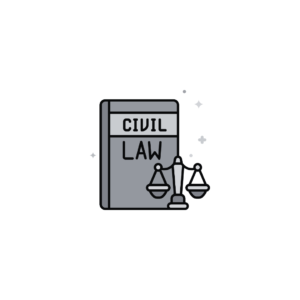Description
Overview of Post Graduate Diploma in Public Law
A Post Graduate Diploma in Public Law focuses on the legal frameworks governing the relationship between individuals and the state, as well as the structure and functions of governmental institutions. Public law encompasses areas such as constitutional law, administrative law, human rights law, and international law, making it essential for understanding how laws and regulations affect public policy and civil rights. This program equips students with the analytical tools and legal knowledge needed to engage effectively in public service, advocacy, and legal practice related to governmental issues.
Curriculum of Post Graduate Diploma in Public Law
While the specific curriculum may vary by institution, a typical Post Graduate Diploma in Public Law often includes the following core subjects:
Introduction to Public Law
Overview of the principles of public law and its significance in regulating state power and protecting individual rights.
Examination of the distinction between public law and private law.
Constitutional Law
In-depth study of constitutions, their interpretation, and the framework of government.
Analysis of the separation of powers, checks and balances, and the role of the judiciary in enforcing constitutional principles.
Administrative Law
Exploration of the laws governing administrative agencies and their decision-making processes.
Examination of the principles of legality, reasonableness, and procedural fairness in administrative actions.
Human Rights Law
Study of national and international human rights instruments and their implementation.
Discussion of key human rights issues, including civil liberties, social justice, and the protection of marginalized groups.
Public International Law
Overview of the rules and principles governing the relationships between sovereign states and international organizations.
Understanding treaties, customary international law, and international dispute resolution mechanisms.
Judicial Review
Examination of the process by which courts oversee the actions of public authorities to ensure compliance with legal standards.
Analysis of landmark cases in judicial review and the implications for governance.
Legal Framework of Public Policy
Study of the interaction between law and public policy, including the formulation of policy and legal implications.
Examination of case studies relating to health, education, and social policy.
International Humanitarian Law
Exploration of the legal standards applicable in armed conflicts, including the protection of civilians and humanitarian workers.
Discussion of the rules governing conduct during war and the prosecution of war crimes.
Environmental Law and Public Policy
Understanding the legal frameworks governing environmental protection and public health.
Examination of the role of public law in addressing climate change and environmental justice.
Comparative Public Law
Study of public law systems in different jurisdictions and comparisons of their approaches to fundamental legal principles.
Examination of how global legal trends influence domestic public law.
Research Methodology in Public Law
Development of research skills specific to public law, including legal analysis, policy evaluation, and data collection techniques.
Contemporary Issues in Public Law
Discussion on current legal challenges and reforms in public law, such as electoral law, freedom of information, and digital rights.
Career Opportunities After Completing PG Diploma in Public Law
Graduates of a Post Graduate Diploma in Public Law can pursue various career paths, including:
Public Interest Lawyer
Representing clients in cases related to civil rights, social justice, and public interest issues.
Government Attorney
Working for government agencies to provide legal advice and support in policy-making and enforcement.
Constitutional Lawyer
Specializing in constitutional law issues, including litigation involving constitutional rights and governmental powers.
Administrative Law Specialist
Advising on compliance with administrative laws and representing clients in administrative proceedings.
Human Rights Advocate
Working for organizations focused on protecting human rights domestically and internationally.
Policy Analyst
Analyzing and developing public policies for governmental bodies, NGOs, or think tanks.
Judicial Clerk
Assisting judges or magistrates with legal research, drafting opinions, and case management within public law contexts.
Academic Researcher or Lecturer
Teaching public law courses at universities or engaging in scholarly research related to public legal issues.
International Organizations Staff
Working with entities such as the United Nations or International Criminal Court on matters related to public law and human rights.
Environmental Advocate
Focusing on environmental laws and policies, working with NGOs or government agencies to promote sustainability and protect the environment.
Conclusion
A Post Graduate Diploma in Public Law provides students with essential knowledge and skills to engage in the complexities of public legal issues and pursue careers in various sectors, including government, advocacy, and academia. This program is ideal for those interested in the intersection of law and public policy. If you have specific questions about institutions that offer this diploma, the application process, or further career guidance, feel free to ask!









